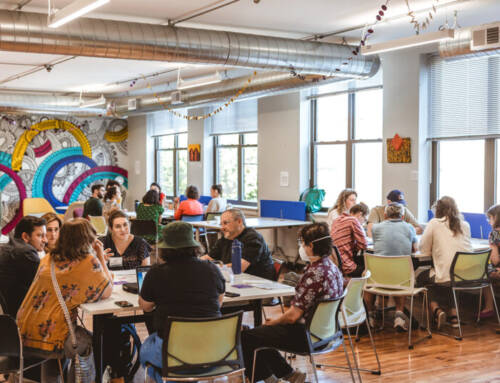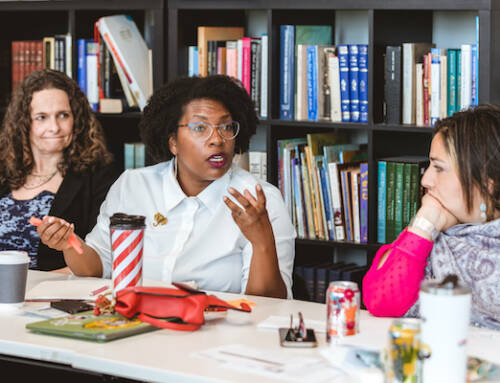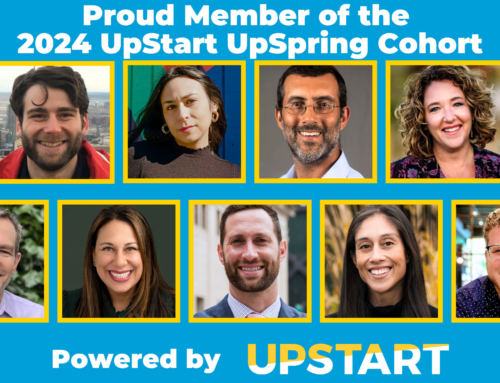We are currently in the second year of experimenting with a new approach to bringing innovative solutions to challenges and opportunities facing NY Jewish Day Schools. The Day School Collaboration Network is a network of educators who share the goal of developing more inspiring, relevant and creative solutions to challenges facing their schools and, by extension, to the broader field of Jewish day school education. This joint project of UpStart Bay Area and The Jewish Education Project made possible by a generous grant from UJA Federation of New York, enables day school educators working at the grass roots (including classroom teachers, curriculum heads, deans, counselors, and learning specialist) to identify and grapple with challenges that impact the field of Jewish day school education, regardless of religious, philosophical, and geographic differences. Before hi-lighting the work of these schools, we want to share some broader observations about this experience.
We have found that in order to bring successful change to our schools, it is critical to note the following:
- Slow down to speed up. Sometimes it is best to take the time to engage in the process of change, rather than the tangible products. When the time is given to the process, it ultimately leads to results that are more lasting and relevant. As a methodology, Design Thinking lends itself to concrete solutions but requires a significant and sustained investment of time in order to arrive at these solutions; success will not occur through a single workshop or training session. Educators in the DSCN have experienced success with Design Thinking because they have engaged in ongoing coaching and collaboration in a series of workshops, and because they have been willing to engage in the iterative process that has changed the way they think and work, and which is slowly affecting the culture of their schools.
- Diverse teams make the biggest impact. DSCN members have built teams of colleagues, within and across schools, where they experiment, share success, and fail forward together. Empowering teams of educators who work across grade levels and curricular disciplines represents a profound change in the way Jewish day school professionals operate and enables them to more quickly change the culture of their schools.
- Sometimes the process itself is the product. When teachers begin to observe and interview colleagues and students, incorporate their input and advice, and empower students to design their own learning experience, they identify and bring to the surface strategic issues that the school has heretofore avoided. Instead of searching for silver bullet solutions, these teams are modeling a new way of working, which we believe will best enable our day schools to achieve sustainability and to thrive.
- Teacher and student empowerment: When teachers and students feel that they have both the permission and the skills to take leadership in their schools, they immediately feel more committed and engaged. The schools benefit when educators and students assume this type of leadership, bringing more diverse and widespread thinking about educational and strategic issues.
- Name the Unspoken Issues. In the DSCN, we have used a combination of Adaptive Leadership and Design Thinking to surface hidden issues facing our schools: Are the teachers engaged? Are the students engaged? Why or why not? We have trained our teams to learn how to appropriately and sensitively deal with the most difficult, often unspoken, strategic issues facing their school communities. It is only when we address challenges at that level that we can begin to make the changes that will ultimately help our schools stay vibrant and relevant.
Below are links to examples of work currently underway in the DSCN. The specific projects emerging from the network are works in progress but the most important results of DSCN educators is their enhanced ability to advance the mission and culture of their schools. We look forward to continuing to share our insights and the work of our schools with you as the network moves towards its third year:
- DSCN 2013-14 first results A short video: click here
- A snapshot of design work at DSCN schools March 31, 2014: click here
- The faculty lounge at Westchester Hebrew High School a creative gateway to school culture: click here
- A student design lab at Jewish Community Day School of Rhode Island click here
- Diversified teaching and learning at Yeshiva Har Torah click here
- And, if youre on Facebook, check out the Day School Collaboration Network of the Jewish Education Project group!
This article is cross-posted on eJewish Philanthropy.
Our purpose is to enable entrepreneurs to bring bold Jewish ideas to light. We help them reach Up to people in new ways that are meaningful, more inclusive, and create a brighter future for our Jewish community and the world we share.




